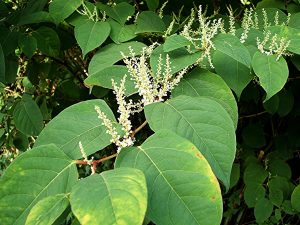
A recent County Court case has emphasised the importance of completing the Property Information Form accurately after the Seller faced over £200k in damages and costs due to incorrectly responding to a question regarding the presence of Japanese Knotweed at the property.
What is Japanese Knotweed?
Japanese Knotweed is an invasive plant which spreads rapidly, stretching so far as 7 metres underground causing damage to building structures, patios, drainage systems and driveways. The weed is difficult to remove and can significantly devalue a property which is why a Seller is required to state whether Japanese Knotweed is present at the property on the Property Information Form.
Property Information Form
There are three possible answers available for the Seller to select on the Property Information Form, ‘Yes’, ‘No’ or ‘Not known’.
Yes – If they tick ‘Yes’, they will need to be able to confirm whether there is a management and treatment plan in place and also provide evidence of the same.
No – By selecting ‘No’, they must be certain that there is no presence of Japanese Knotweed at the property or within 3 metres of the property boundary, including no roots present beneath the ground.
Not known – If the Seller is unsure as to whether the weed is present above or below the ground, or whether this has been managed at the property prior to their ownership, then they should tick ‘Unknown’.
Failure to complete this section correctly could leave the Buyer entitled to compensation from the Seller. Mr Henderson had selected ‘No’ on the Property Information Form however, the Buyer had later discovered Japanese Knotweed canes next to the shed at the property. The Buyers sued Mr Henderson for misrepresentation and the Seller was left with a large £200k bill to pay.
What does this mean if you are buying a Property?
If you are purchasing a property and the Seller has ticked ‘Unknown’ on the Property Information Form, it is advisable to have a Japanese Knotweed survey of your own carried out at the property. If the Seller has selected ‘Yes’, then this could impact your ability to obtain a mortgage as lenders are typically cautious when lending on a property affected by Japanese Knotweed.
Article written by Chloe Hewetson

